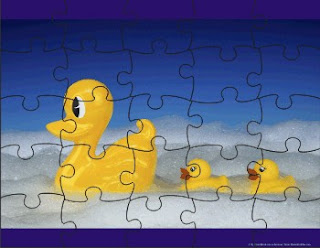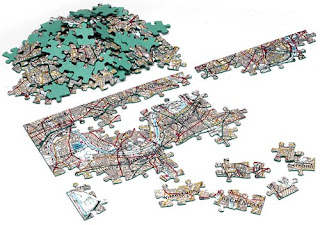I was a iPhone-only user for about 2 years when I got my Nexus One last year. Instead of ditching the iPhone, I've been using both devices for the past year - the Nexus One as my phone and internet device (email, browsing, etc) and the iPhone for music and gaming. I take both of them when I travel, when I go to work, when I get in the car, etc. After a bit, I realized I didn't want to ditch either of them, as I liked and disliked things about both of them, and thought of an interesting way of explaining that.
iPhone

The iPhone feels simple, yet complete. It knows what it can do, does it very well and rarely screws up - the homescreen is a simple icon grid, all settings are in one place and everything is smooth and neatly animated. The downside of course is, that is feels a little dumb - notifications are uselessly simplistic, apps can't tie into each other and worst of all, you have to use iTunes - the music player/content store/social network/central hub/software configuration system/kitchen sink monstrosity that makes me yearn for the days of Real Player.
Android
 Android feels smarter and more ambitious, but very much incomplete. It allows you to personalize your device as much as you want, apps can tie into each other and adjust to different phones and it uses Google's cloud as an integral link to the device - your email and calendar just show up, apps can be pushed from a browser and software updates are quick, painless and delivered over the air. The downside is that Android is still very much a work in progress - you can wipe your device and sign into another and your email/calendar/contact list will show up, but not your call or SMS log. Music? Figure it out yourself!
Android feels smarter and more ambitious, but very much incomplete. It allows you to personalize your device as much as you want, apps can tie into each other and adjust to different phones and it uses Google's cloud as an integral link to the device - your email and calendar just show up, apps can be pushed from a browser and software updates are quick, painless and delivered over the air. The downside is that Android is still very much a work in progress - you can wipe your device and sign into another and your email/calendar/contact list will show up, but not your call or SMS log. Music? Figure it out yourself!Growth and Development
Both platforms are changing and the analogy applies here as well. We can imagine Android to be a big puzzle that Google solves in public by adding more pieces all the time, whereas we can imagine Apple releasing a complete, solved puzzle once a year - each puzzle being larger than the previous, yet still containing the previous year's puzzle in itself.
Ultimately both have to borrow a lot from each other's play book - Apple must eventually ditch iTunes as a hub and move to the cloud (image the absurdity of using your PC to sync your phone in 2015), while Google must still deliver important pieces like purchasing music and other content.
